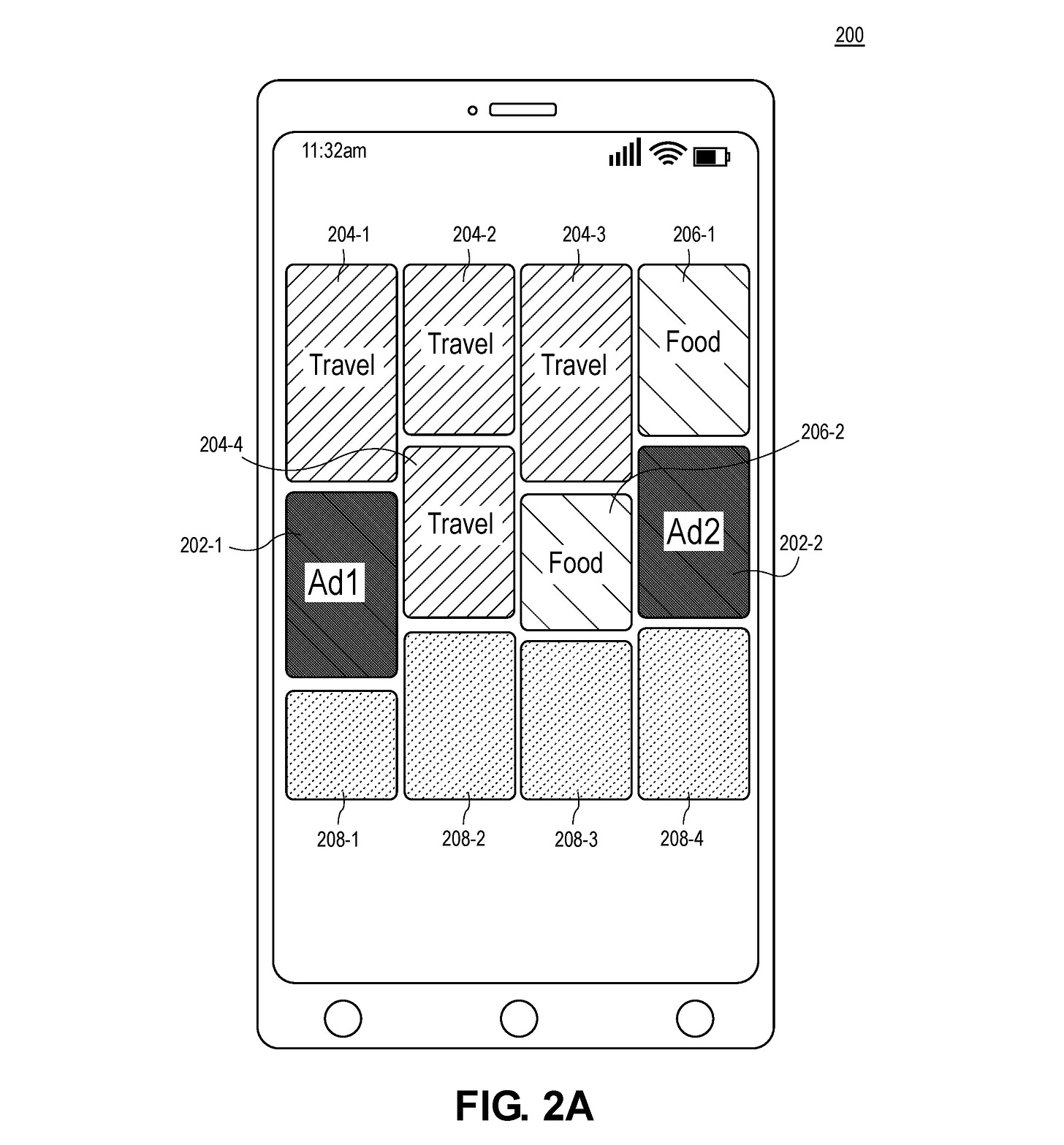For more crisp and insightful business and economic news, subscribe to The Daily Upside newsletter. It's completely free and we guarantee you'll learn something new every day.
Pinterest is on a mission to better understand its user base.
The company is seeking to patent a system for "context based advertisement prediction." The technique uses AI to take into account a user's activity holistically to better place ads within the context of its platform.
Pinterest's system looks at a host of data, including: a user's historical activity and profile data including demographic, subscriptions, purchase history and clickthrough history; the user's current query; contextual information about content near where the advertisement would be placed; and the quality and positioning of the ad itself.
The system then feeds this information to deep neural networks to determine "relevance scores," or predictions of how likely it is that a user will interact with the ad. This system also utilizes what it calls "cached content items" (ie, previous search results) to approximate where the ad would go in the context of the search, thereby mitigating latency issues.
For users, this presents as highly specific ads. But for the benefit of Pinterest (and the company's advertisers), the performance of the presented ads are tracked, such as clickthrough and purchase rates. That feedback is then fed to the neural network to improve performance and accuracy continuously.
Pinterest says in its filing that irrelevant and "questionable" ads hurt the user experience, and "the ineffectiveness of advertisements can also be magnified if unrelated and/or irrelevant advertisements are presented relative to the non-advertisement content being presented."

Pinterest has been working hard to monetize its platform. In April, Axios reported the company planned to invest in shopping tech, including adding computer vision, machine-learning, and AI tools to personalize shopping and track user behavior. The company also filed a patent application recently for a system that digs through users' emails (with their permission, of course) to serve them better content.
Making ads more relevant could considerably help the company in its shopping ambitions, said Lauren Tierney, investor at venture and digital asset fund Decasonic. "What we know is that AI leads to personalization," she noted. "The more relevant and personalized our ads are, the context there is around our ads, the more engaged we're going to be."
Tierney gave the example of TV ads versus social media ads. Most people don't want to stick around to watch the commercials, as they're not personalized to the user. But utilizing user data, especially on a visually focused platform like Pinterest, "They're serving ads that actually enrich your experience in the app versus taking away from it," Tierney said.
Pinterest reported an uptick in sales in its earnings report earlier this month, with CEO Bill Ready telling investors that the company "continued to build momentum with consumers and advertisers while further accelerating our pace of innovation." Yet the company's expenses grew faster than its revenue. Getting AI-based tools in place for shopping and ads could buoy the company during a time when the digital ad business is dragging, said Tierney.
While tech like this helps any company that relies on digital ads to make money, contextual advertising isn't exactly new, said Dan Ratner, CEO at branding agency uberbrand. Context is a key tool that advertisers use to get the most bang for their buck, he said. Other companies like Meta and Shopify have filed to patent similar tools, and many other companies are likely using AI to gain as much insight on their customers as possible, said Ratner.
"I'm surprised this hasn't been patented already," said Ratner. "I don't see it as being particularly unique. I can't see in what way it's different to what is already being experienced on Pinterest or any other social media platform."
Whether or not this tech is actually patentable, gaining deep understanding of user habits to place content more optimally is likely a key component of Pinterest's plan to make, in the words of Ready in February, "every pin shoppable."
Have any comments, tips or suggestions? Drop us a line! Email at [email protected] or shoot us a DM on Twitter @patentdrop. If you want to get Patent Drop in your inbox, click here to subscribe.
